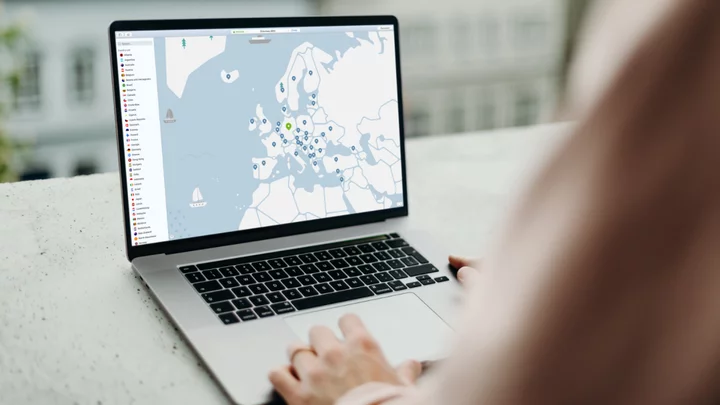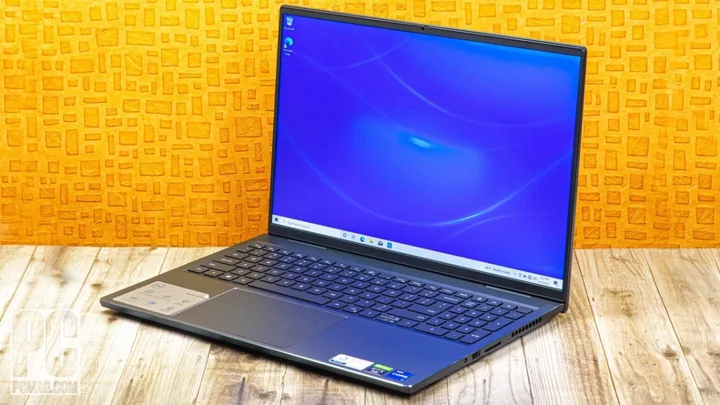UPDATE: Sep. 2, 2023, 5:00 a.m. EDT We've revisited this review as part of an ongoing overhaul of Mashable's VPN coverage based on stricter criteria and hands-on testing. Our analysis will continue to evolve as we keep using NordVPN over the coming months.
After 11 years on the market and a number of high-profile influencer sponsorship deals, NordVPN is easily the most recognizable name in the VPN space. Does it live up to the hype?
My testing confirmed that most of what you've already heard in YouTube and Twitch adslots is true: NordVPN is a highly customizable service with a slew of features that offers a great value if you opt for a long-term plan. I wish its approach to transparency was as historically aggressive as its marketing strategy, but it's made some admirable headway on that front in recent years.
How much does NordVPN cost?
NordVPN offers three different subscription tiers, which vary in price depending on the plan's length and included extras. Each one supports up to six simultaneous connections per account:
NordVPN Standard ($12.99/month, $4.99/month per year, or $3.79/month per two years with three free bonus months) includes the VPN service and Threat Protection, an anti-malware and tracker/ad-blocking tool.
NordVPN Plus ($13.79/month, $5.79/month per year, or $4.59/month per two years with three free bonus months) tacks on NordPass, a cross-platform password manager with a data breach scanner.
NordVPN Complete ($14.99/month, $6.99/month per year, or $5.79/month per two months with three free bonus months) throws in NordLocker, a file encryption tool with 1TB of cloud storage.
You can flesh out any plan with two other add-ons:
A dedicated IP, or static IP, is an IP address that's exclusively assigned to you whenever you connect to the VPN. It's less likely to get flagged by streaming services and other sites that block VPNs by looking out for IP addresses with multiple users.
Incogni (starting at $3.69/month) is a service that scrubs your personal information from the web.
For the purposes of this review, I only tested the VPN service itself (via NordVPN Standard).
NordVPN offers a 30-day money-back guarantee within the first 30 days of a subscription and accepts credit cards, cryptocurrencies, PayPal, Amazon Pay, and Google Pay, among other payment options.
SEE ALSO: The best VPN deals this weekHands-on with NordVPN
NordVPN works on Windows, Mac (which I used), Android, iOS, Linux, Chrome, Firefox, Edge, Android TV, Fire TV Stick, Chromecast, Kindle Fire, Raspberry Pi, and gaming consoles via hotspot or router.
NordVPN automatically uses its proprietary NordLynx protocol, which is built around WireGuard, though you can manually select OpenVPN instead.
The NordVPN desktop app features a simple world map stippled with blue dots representing the locations of its servers, which turn green when you're connected to them. A bar at the top of the window displays your current connection status alongside a "quick connect/disconnect" button.
As a visual person, I'm a big fan of the map. Credit: Screenshot: NordVPNUsers can connect to a NordVPN server simply by clicking that button, clicking a dot on the map, or by selecting one of the options on the left side of the app window:
The downloads, speed, and browsing presets are shortcuts for servers that have been optimized for their respective activities.
The alphabetical countries list makes it easy to select a server in a specific location if you don't feel like panning through the whole map. (NordVPN had more than 5,700 servers in more than 60 countries worldwide at the time of writing — it's not the best global diversity we've seen among premium VPNs, but it's still pretty respectable.)
The five specialty servers are shortcuts for advanced connection types like your dedicated IP, if you added one to your subscription; double VPN (aka multi-hop) servers; obfusticated servers that can supposedly bypass VPN-blocking firewalls; Onion Over VPN servers that route your traffic through the Onion network (Tor) after it's encrypted by the VPN; and P2P servers that are optimized for torrenting.
NordVPN also offers a split tunneling function, but only on Windows, Android, and Android TV.
Selecting "Onion Over VPN" put me on one of NordVPN's specialty servers in Switzerland. Credit: Screenshot: NordVPNThere's a column of icons on the top left-hand side of the NordVPN app, which open tabs for your presets, your usage statistics, and several baked-in security features. These include the threat protection blocker; a dark web monitor that trawls the internet for credential leaks associated with your account's email; and a Meshnet feature that lets you route traffic and share files through trusted devices.
There are two more icons in the bottom-left corner of the app. One of them opens a preferences tab where you can play around with different settings — including a kill switch, which needs to be manually enabled. The other icon pulls up a trio of shortcuts that link out to email support, an online help forum, and some activity logs the app retains for troubleshooting purposes. (A NordVPN spokesperson told me these logs are stored locally and only contain information about usage and possible crashes, not sensitive user data.)
It's very apparent that NordVPN is geared toward power users who want to be able to noodle around with every aspect of their VPN experience. As for me, I tested NordVPN solely within the scope of casual, everyday browsing and streaming, and primarily on my nearest local server in Chicago.
My experience was a mostly positive one. NordVPN sometimes took 30 seconds to a whole minute to connect, both when I was home and at a nearby coffee shop — long enough to be actively annoying. But it ran unnoticed in the background once the connection was made, and DNS leak tests confirmed it consistently hid my true IP address. What's more, an Ookla Speedtest showed a negligible impact on my download speed and ping.
Regular internet connection versus nearby NordVPN server Credit: Screenshot: Ookla Credit: Screenshot: OoklaI did notice slow load times when I tried out some NordVPN servers abroad, but that's to be expected since my traffic was traveling a greater distance. (This was reflected in another Ookla Speedtest that measured high ping.) More importantly, I had zero trouble unblocking ITVX, the BBC iPlayer, and Netflix UK when I connected to one of NordVPN's British servers. And once shows loaded, they played without any buffering or lagging.
Regular internet connection versus French NordVPN server Credit: Screenshot via Ookla Credit: Screenshot via OoklaIs NordVPN trustworthy?
NordVPN is respectably clear about the personal data it does and doesn't collect. Its record of transparency is a little iffier, but some amends have been made.
The NordVPN privacy policy "guarantees a strict no-logs policy" for its services, promising never to track, collect, store, or share users' internet activity with third parties. (This covers user bandwidth, traffic, IP addresses, and browsing history.) "From the moment a NordVPN user connects to one of our VPN servers, their internet data becomes encrypted," the policy reads.
NordVPN does collect some technical data associated with users, mainly to optimize their experience. Statistical server load information plays a part in its server recommendations, for instance, while concurrent active sessions are kept in check based on usernames and session timestamps. (Those timestamps are then deleted after 15 minutes.) It also processes basic billing information in order to collect payments for its service.
NordVPN's no-logs claim has been verified in three independent audits. It's never been forced to prove the legitimacy of this claim in court or as part of an investigation, unlike other popular providers, but that's through no fault of its own: According to the company's warranty canary, which gets updated daily, it's never received a single National Security letter, gag order, or government warrant.
NordVPN's transparency efforts fell short of what we expect from an industry-leading provider back in 2019, when the company revealed one of its servers at a third-party data center in Finland had been breached six months after the fact — and really only when the news reached X (then Twitter).
NordVPN said in a blog post that no user credentials or activity logs were compromised in the breach, and that the affected server was immediately "shredded." It also addressed its delayed disclosure to the public, citing a need to make sure the attack couldn't be replicated on any of its other servers. Still, the incident was a major knock against its reputation at the time, and perhaps rightfully so: It's hard to trust a VPN that seems like it's trying to hide something. (For further reading, I highly recommend this analysis by Max Eddy, former lead security analyst at our sister site PCMag.)
The good news is that NordVPN has used this incident as an opportunity to re-examine and overhaul its privacy and transparency practices. In the years since, it's launched a bug bounty program, established new security standards for its partnered data centers, and started upgrading its network to diskless servers that don't store anything locally. It's also subjected its NordLynx protocol, apps, and infrastructure to independent audits, and fixed vulnerabilities accordingly.
Is NordVPN worth it?
Power users will make the most out of NordVPN, but it's still easy enough for casual and first-time VPN users to navigate. Overall, it's a versatile and flexible VPN service that's a killer deal for long-term subscribers given everything it includes — even at the most basic tier.
Features aren't everything when it comes to VPNs, though, and potential subscribers should decide for themselves whether NordVPN has done enough to redeem itself since its breach bungle.









